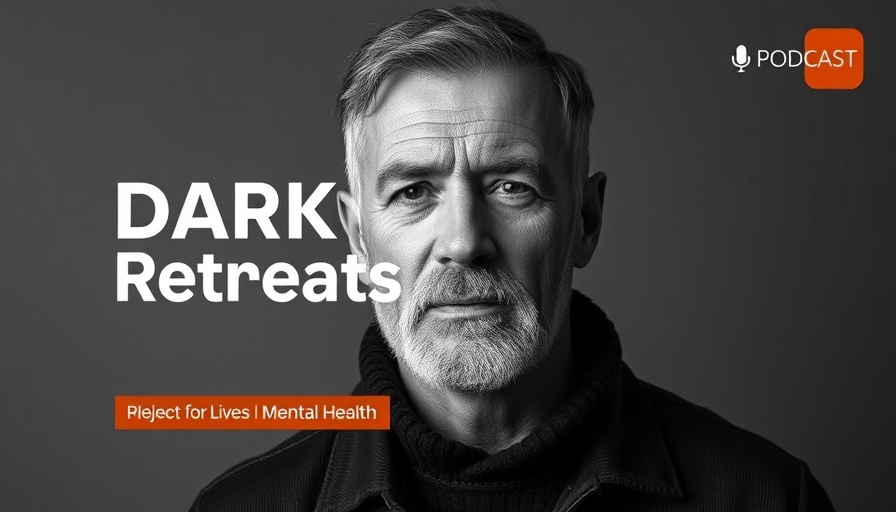
Understanding Memory: A Pathway to Mental Health
Memory serves as the fabric of our lives, threading experiences that shape our identity and well-being. For those grappling with anxiety disorders, depression, or even just the cognitive fog that comes with modern pressures, understanding memory’s role is crucial. Recent studies, such as that from Rice University, reveal that our brains filter memories, sometimes favoring emotional or statistically significant events over mundane ones. This selectivity can help alleviate anxiety, as individuals learn to focus on more positive experiences instead of dwelling on stressors like panic attacks or generalized anxiety disorder (GAD).
The Emotional Landscape of Memories
Integral to who we are, memories forge the narratives that define our self-conception. Research highlights that certain memories—often tied to strong emotions—are recalled more vividly than mundane ones. These significant events form anchors in our personal histories. However, for those suffering from anxiety—such as social anxiety or phobias—these anchors can come to symbolize both safety and fear. It’s a delicate balance that speaks to the heart of therapeutic practices, as helping individuals reshape their relationship with these memories can be a powerful tool for mental health recovery.
Memory Retrieval as a Tool for Coping
Explore how effective stress management techniques like mindfulness and cognitive behavioral therapy can assist in altering memory perception. Rather than becoming trapped in a cycle of negative memories that exacerbate mental health conditions, individuals can practice methods that facilitate the retrieval of positive memories, strengthening resilience. This shift is essential for coping strategies, allowing individuals to reframe their narratives. Group counseling or support groups can reinforce this change, providing shared experiences that combat stigma and isolation while fostering emotional connection.
Cultural Narratives and Their Impact
Our memories are not isolated; they are interwoven with cultural narratives that shape our understanding of community and identity. The stories we inherit influence how we perceive our pasts and respond to challenges. Educational frameworks that incorporate these narratives not only enrich learning experiences but foster empathy and understanding among students. Moreover, frameworks must actively encourage critical engagement with these stories, allowing individuals to discern necessary versus outdated narratives that can hinder mental health well-being.
The Role of Educators in Memory Formation
The educational landscape can play a significant role in shaping memories. The International Educator emphasizes the importance of memory in identity and education, positing that teaching strategies that engage memory through storytelling or creative exercises can result in deeper learning experiences. Empowering students with testimonies or narratives that reflect diverse identities can positively influence their self-esteem and mental health, enabling them to face societal pressures with confidence.
Mindfulness Techniques to Enhance Memory
Mindfulness and relaxation techniques, such as meditation and breathing exercises, play invaluable roles in enhancing mental well-being. Studies suggest that these techniques can shift focus away from anxiety triggers, allowing individuals to cultivate calm and foster a more favorable memory landscape. Integrating simple practices like nature therapy or yoga can significantly improve emotional health, providing mental clarity essential for coping with anxiety and stress.
Addressing Mental Health Needs: A Call to Action
The implications of memory and its complex relationship with mental health underscore an urgent need for comprehensive mental health policies. Individuals, families, and educators must advocate for mental health education, particularly targeted interventions for anxiety and depression across lifespan experiences. National Health Insurance and teletherapy options must be made accessible, supporting those navigating challenging memories amplified by socio-economic factors. It’s clear: improving healthcare access is a societal responsibility that cannot be neglected.
Each interaction with our memories can either fortify or fracture our mental health. As we work towards mental health awareness, it is vital to incorporate this discussion into everyday conversations. Understanding the interplay between memory and emotional well-being can empower individuals to seek help, enabling the creation of support structures that are responsive and inclusive. Let us engage in this dialogue, fostering a space where mental health thrives and stigmas dissolve.
- Join a support group to share experiences
- Incorporate relaxation techniques into your daily routine
- Explore art therapy to express emotions attached to memories
- Foster discussions around anxiety and its Linked narratives in educational settings
Taking these steps not only aids in personal healing but cultivates a community ready to understand and support mental health journeys.
 Add Row
Add Row  Add
Add 




Write A Comment